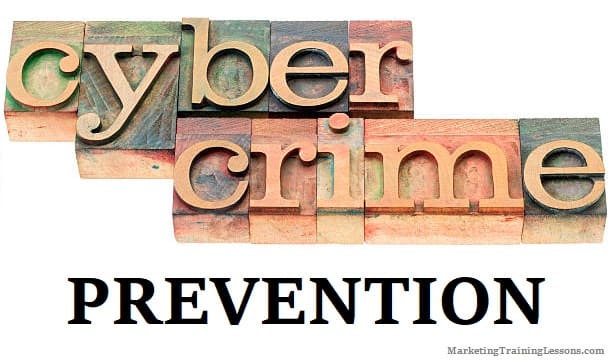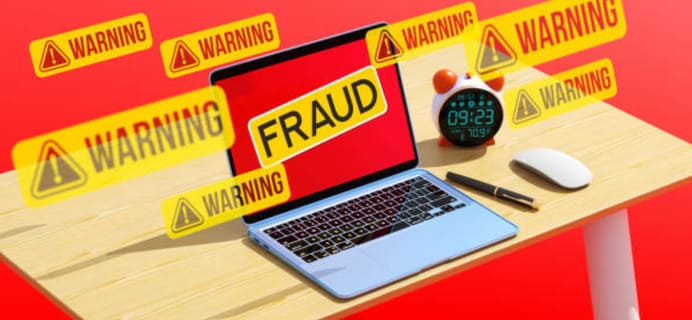Top Strategies for Cyber Crime Prevention

Shielding Your Digital Life: Top Strategies for Cyber Crime Prevention
Alright, let’s just cut to it—cyber crime is everywhere. It’s like that annoying mosquito buzzing around at 3am, except instead of itching, you might wake up broke or locked out of your own accounts. Fun times, right?
Honestly, with the way tech keeps leveling up, we’re all just a little too comfy online. Streaming, banking, shopping, doomscrolling—our lives are basically one big login screen.
So yeah, locking things down is kinda non-negotiable if you don’t want some rando halfway across the world pretending to be you.
We’re talking identity theft, phishing emails that look suspiciously like your bank (but are actually from “Wanda” in who-knows-where), sketchy get-rich-quick nonsense, and whatever else the internet can cook up. It’s a digital jungle out there.
But hey, don’t go smashing your router just yet. I’ve rounded up the best ways to keep those cyber creeps at bay. Think of this as your digital armor—no chainmail required.
Let’s get into the good stuff and actually do something about it with cyber crime prevention before you end up as another horror story on Reddit.
Click here to see my #1 recommendation for making money online
Introduction to Cyber Crime Prevention
When it comes to cyber crime prevention, the best defense is a good offense. By taking proactive measures to protect your digital life, you can help shield yourself from identity theft, online scams, and other malicious attacks.
Here are some top strategies for cyber crime prevention:
1. Use strong passwords and enable two-factor authentication.
2. Keep your software and operating system up to date.
3. Be cautious about what you click on and download.
4. Install security software and enable firewall protection.
5. Back up your data regularly.
6. Monitor your credit report and accounts for suspicious activity.
7. Be aware of social engineering techniques and phishing scams.
8. Practice good cyber hygiene habits.
Common Types of Cyber Crimes
There are many different types of cyber crimes, but some of the most common include:
– Identity theft: This is when someone steals your personal information in order to impersonate you and commit fraud.
– Phishing: This is when someone tries to trick you into giving them sensitive information, such as passwords or credit card numbers, by masquerading as a trustworthy person or organization.
– Malware: This is software that is designed to damage or disable computers without the user’s knowledge or consent.
– Denial-of-service attacks: This is when a hacker overwheltic Services (DDoS) attempts to make an online service unavailable by flooding it with traffic from multiple computers.
– Ransomware: This is when a hacker encrypts your files and demands payment in order to decrypt them.
Click here to see my #1 recommendation for making money online
How to Protect Yourself from Cyber Attacks
There are a few key things you can do to protect yourself from cyber attacks:
1. Keep your software and operating system up to date. This will help close any security holes that attackers could exploit.
2. Use a strong, unique password for each online account. This makes it more difficult for hackers to gain access to your accounts.
3. Be cautious about what you click on and download. Some malicious files can infect your computer with malware or viruses.
4. Use a reputable antivirus and firewall program. These can help block dangerous requests and prevent malware from infecting your computer.
5. Back up your important files regularly. This way, if your computer is attacked and data is lost, you’ll be able to restore it from the backup.

Click here to see my #1 recommendation for making money online
Strategies for Enhancing Cyber Security
When it comes to cyber crime prevention, there are many ways to enhance your cyber security and protect your digital life from crime. Below are some strategies you can use to stay safe online:
1. Use strong passwords and keep them confidential. Create passwords with at least eight characters and include a mix of uppercase and lowercase letters, numbers, and symbols.
Avoid using easily guessed words or personal information like your birthdate or mother’s maiden name. And never share your passwords with anyone.
2. Install anti-virus software from a reputable source and keep it up to date. This will protect your computer from malicious software, also known as malware, that can damage your system or steal your personal information.
3. Don’t click on links or attachments in unsolicited emails, even if they appear to be from someone you know. Cyber criminals often use “phishing” scams to lure victims into clicking on malicious links or attachments in email messages.
If you receive an unsolicited email that looks suspicious, even if it appears to be from a trusted source, do not click on any links or attachments—delete the email immediately.
4. Back up important files and store them offline. In the event that your computer is hacked or damaged, it’s important to have backups of all your important files.
This includes photos, financial documents, and other sensitive information—store them in a secure location.
Consider backing up your data to an external hard drive or cloud storage service that can be accessed from any internet-connected device.
5. Keep updated on cyber security threats and techniques. Technology changes quickly, so it’s important to stay informed about the latest cyber security.
Follow trusted sources of cyber security news and advice, or sign up for email alerts from your anti-virus software provider.
Click here to see my #1 recommendation for making money online
Tips and Tricks on Creating Strong Passwords
When it comes to creating passwords, there are a few key things to keep in mind. First, try to use a mix of upper and lower case letters, numbers, and symbols.
Second, make sure your password is at least 8 characters long. And third, avoid using easily guessed words like “password” or your name.
Here are a few other tips and tricks for creating strong passwords:
– Use a phrase instead of a word. For example, “I love spending time with my family” can become “ilove spendingtime withmyfamily”.
– Include numbers and symbols in your password. For example, you could replace the letter “o” with the number “0” or the letter “a” with the “@” symbol.
– Make your password longer by adding extra characters. For example, you could add an exclamation point at the end of your password or use random letters and numbers.
– Use different passwords for different accounts. That way, if one password is compromised, your other accounts will remain safe.
Encryption Practices to Secure Online Data
As the world goes digital, so too do our lives. More and more of our personal data is stored online, from financial information to health records.
As our reliance on the internet grows, so too does the risk of cybercrime. That’s why it’s important to take steps to protect your online data. One way to do this is through encryption.
Encryption is a process of transforming readable data into an unreadable format. This makes it much more difficult for hackers to access your information if they were to somehow get through your other defenses.
There are many different encryption methods available, and which one you use will depend on your needs. For example, if you’re looking to encrypt your email communications, there are a number of programs that can do this for you.
Or if you’re looking to protect your entire computer system, there are full-disk encryption programs that can encrypt every file on your hard drive.
No matter what method you choose, the important thing is that you take steps to encrypt your online data. With the right protection in place, you can help keep your information safe from cyber criminals.
Click here to see my #1 recommendation for making money online
Benefits of Using a VPN (Virtual Private Network)
When it comes to online security, a Virtual Private Network, or VPN, is one of the best tools you can use. A VPN encrypts your internet traffic and routes it through a secure server, making it difficult for hackers to intercept your data.
In addition, a VPN can also bypass government censorship and geographical restrictions, allowing you to access blocked websites and content.
There are many other benefits of using a VPN, including increased privacy and anonymity, which is especially important if you frequently use public Wi-Fi networks.
With a VPN, your internet activity is hidden from your ISP (internet service provider) and other third parties, meaning that your online activities are much more difficult to track.
If you’re looking for ways to protect your online privacy and security, using a VPN is one of the best things you can do.
Conclusion
In conclusion, cyber crime is a growing threat that needs to be taken seriously to protect yourself from becoming a victim of cybercrime.
Cyber crime prevention is about taking proactive steps such as creating strong passwords, protecting your devices with antivirus software, and avoiding unsafe websites.
This will prevent you from cyber crime criminals accessing your personal details, such as credit card details, passwords, identity theft, and other sensitive information.
By staying vigilant and educating yourself about the latest threats, you can ensure that your digital life remains safe and secure.
Click here to see my #1 recommendation for making money online

